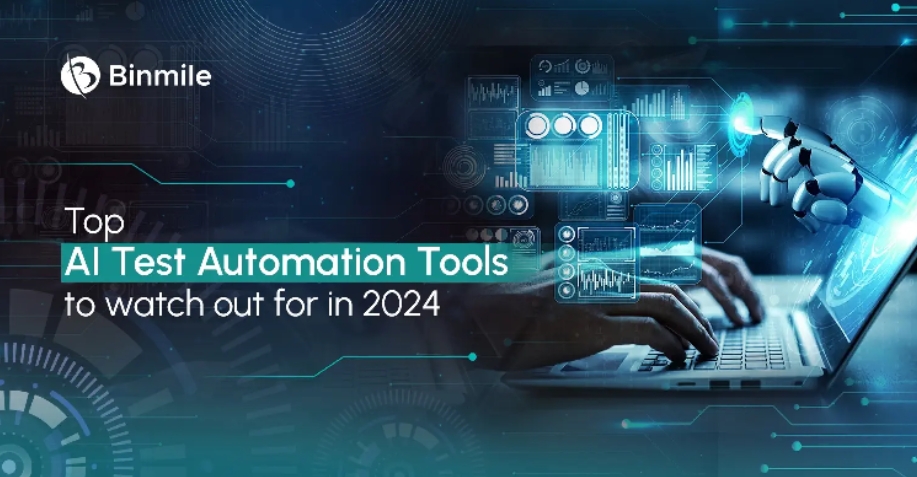AI testing tools leverage artificial intelligence and machine learning to enhance the software testing process. They automate and optimize various testing activities, providing intelligent insights and predictive analytics to ensure the highest quality of software products.
Importance of AI in Software Testing
Traditional testing methods often fall short in terms of speed and accuracy. AI testing tools address these limitations by automating repetitive tasks, identifying defects early, and providing real-time feedback, thus revolutionizing the quality assurance landscape.
Benefits of AI Testing Tools
A. Improved Accuracy and Efficiency
AI testing tools use machine learning algorithms to detect patterns and anomalies that might be missed by human testers. This leads to more accurate identification of bugs and issues, reducing the risk of software failures.
B. Faster Testing Cycles
Automation of testing processes significantly speeds up the testing cycles. AI testing tools can run multiple tests simultaneously, drastically reducing the time required to bring a product to market.
C. Cost-Effectiveness
By automating repetitive and time-consuming tasks, AI testing tools reduce the need for extensive manual testing, leading to significant cost savings. The efficiency gains also translate to lower overall development costs.
D. Enhanced Test Coverage
AI testing tools can analyze vast amounts of data and generate comprehensive test cases, ensuring thorough test coverage. This reduces the likelihood of critical issues slipping through the cracks.
Key Features of AI Testing Tools
A. Automated Test Case Generation
AI testing tools can automatically generate test cases based on the analysis of application behavior and historical data. This ensures that all possible scenarios are tested, enhancing the robustness of the software.
B. Intelligent Test Execution
These tools intelligently execute test cases, prioritizing those that are most likely to uncover defects. This focused approach improves the efficiency and effectiveness of the testing process.
C. Self-Healing Test Scripts
AI-powered self-healing capabilities allow test scripts to adapt to changes in the application automatically. This reduces the maintenance burden and ensures continuous testing without manual intervention.
D. Predictive Analytics and Reporting
AI testing tools provide predictive analytics that help in forecasting potential issues and performance bottlenecks. Detailed reporting features offer insights into the quality and readiness of the software, aiding in informed decision-making.
Popular AI Testing Tools in 2024
A. Tool 1: Overview and Features
Tool 1 is known for its advanced machine learning algorithms that offer unparalleled test case generation and defect prediction capabilities. Its intuitive interface and comprehensive analytics make it a top choice for enterprises.
B. Tool 2: Overview and Features
Tool 2 excels in intelligent test execution and self-healing scripts. It integrates seamlessly with popular CI/CD pipelines, ensuring continuous testing and delivery.
C. Tool 3: Overview and Features
Tool 3 focuses on predictive analytics and detailed reporting. It provides actionable insights that help improve the quality of software products and accelerate release cycles.
D. Tool 4: Overview and Features
Tool 4 is designed for ease of use, offering automated test case generation and intelligent test execution. Its robust integration capabilities make it suitable for diverse software environments.
E. Tool 5: Overview and Features
Tool 5 stands out for its comprehensive test coverage and cost-effectiveness. Its AI-driven approach ensures thorough testing and significant savings in time and resources.
AI Automation Tools and Their Integration
A. AI Automation Tools Overview
AI automation tools complement AI testing tools by automating various aspects of the software development lifecycle. They enhance productivity and ensure consistent quality across all stages of development.
B. Benefits of Integration with AI Testing Tools
Integrating AI automation tools with AI testing tools offers several benefits, including streamlined workflows, enhanced collaboration, and improved efficiency. This integration ensures that all aspects of software development and testing are seamlessly connected.
C. Case Studies of Successful Integration
Several leading companies have successfully integrated AI automation tools with their testing processes, resulting in improved product quality and faster time-to-market. These case studies highlight the tangible benefits of such integrations.
AI Testing Tools for Different Industries
A. Healthcare
In the healthcare industry, AI testing tools ensure the accuracy and reliability of critical applications, such as electronic health records and patient management systems. They help in maintaining compliance with regulatory standards.
B. Finance
AI testing tools in the finance sector enhance the security and functionality of financial software, including banking applications and trading platforms. They ensure that sensitive data is protected and transactions are executed flawlessly.
C. Retail
Retail businesses use AI testing tools to optimize e-commerce platforms, inventory management systems, and customer engagement applications. This leads to improved customer satisfaction and operational efficiency. Integrating Rinkt retail automation further enhances these processes by streamlining inventory control, automating routine tasks, and providing real-time data analytics, ultimately driving more effective decision-making and increasing overall productivity.
D. Education
Educational institutions leverage AI testing tools to ensure the reliability of learning management systems, virtual classrooms, and administrative software. This enhances the learning experience for students and educators.
E. Manufacturing
In the manufacturing sector, AI testing tools are used to validate the functionality of production management systems, supply chain applications, and IoT devices. They ensure that manufacturing processes run smoothly and efficiently.
Choosing the Right AI Testing Tool
A. Assessing Your Needs
Identify the specific requirements of your project to choose an AI testing tool that aligns with your goals. Consider factors such as the complexity of the application, testing scope, and desired outcomes.
B. Evaluating Features
Compare the features of different AI testing tools to determine which one best meets your needs. Look for capabilities such as automated test case generation, self-healing scripts, and predictive analytics.
C. Considering Cost and ROI
Evaluate the cost of the AI testing tools and the potential return on investment. Choose a tool that offers the best value for your budget while delivering the desired benefits.
D. Reading Reviews and Testimonials
Read reviews and testimonials from other users to gain insights into the performance and reliability of the AI testing tools. This helps in making an informed decision.
Future Trends in AI Testing Tools
A. Increased Adoption of AI and ML
The adoption of AI and machine learning in testing tools is expected to grow, leading to more sophisticated and efficient testing processes.
B. Enhanced Predictive Capabilities
AI testing tools will continue to improve their predictive capabilities, enabling more accurate forecasting of defects and performance issues.
C. Greater Focus on Security Testing
As cybersecurity threats evolve, AI testing tools will place a greater emphasis on security testing to ensure robust protection of software applications.
D. Evolution of Self-Healing Test Scripts
Self-healing test scripts will become more advanced, reducing the need for manual intervention and ensuring continuous testing even in dynamic environments.
E. Collaboration with AI Development Companies
AI testing tools will increasingly collaborate with AI development company to integrate cutting-edge technologies and methodologies, enhancing their capabilities and effectiveness.
Conclusion
A. Summary of Key Points
AI-powered test automation tools are revolutionizing the software development landscape by providing more efficient, accurate, and cost-effective testing solutions.
B. Final Thoughts on AI Testing Tools
As AI and machine learning continue to advance, the capabilities of test automation tools will expand, driving innovation and improving software quality across industries.
FAQs
A. What are AI testing tools?
AI testing tools leverage artificial intelligence to automate and enhance the software testing process, providing intelligent insights and predictive analytics.
B. How do AI testing tools improve software testing?
AI testing tools improve software testing by increasing accuracy, efficiency, and test coverage, while reducing testing time and costs.
C. What are the key features to look for in AI testing tools?
Key features to look for include automated test case generation, intelligent test execution, self-healing test scripts, and predictive analytics and reporting.
D. How do AI testing tools integrate with other automation tools?
AI testing tools integrate with other automation tools to streamline workflows, enhance collaboration, and improve overall efficiency in the software development lifecycle.
E. What is the future of AI testing tools?
The future of AI testing tools includes increased adoption of AI and ML, enhanced predictive capabilities, greater focus on security testing, evolution of self-healing test scripts, and collaboration with AI development companies.
Stay in touch to get more news & updates on Discover Tribune!




